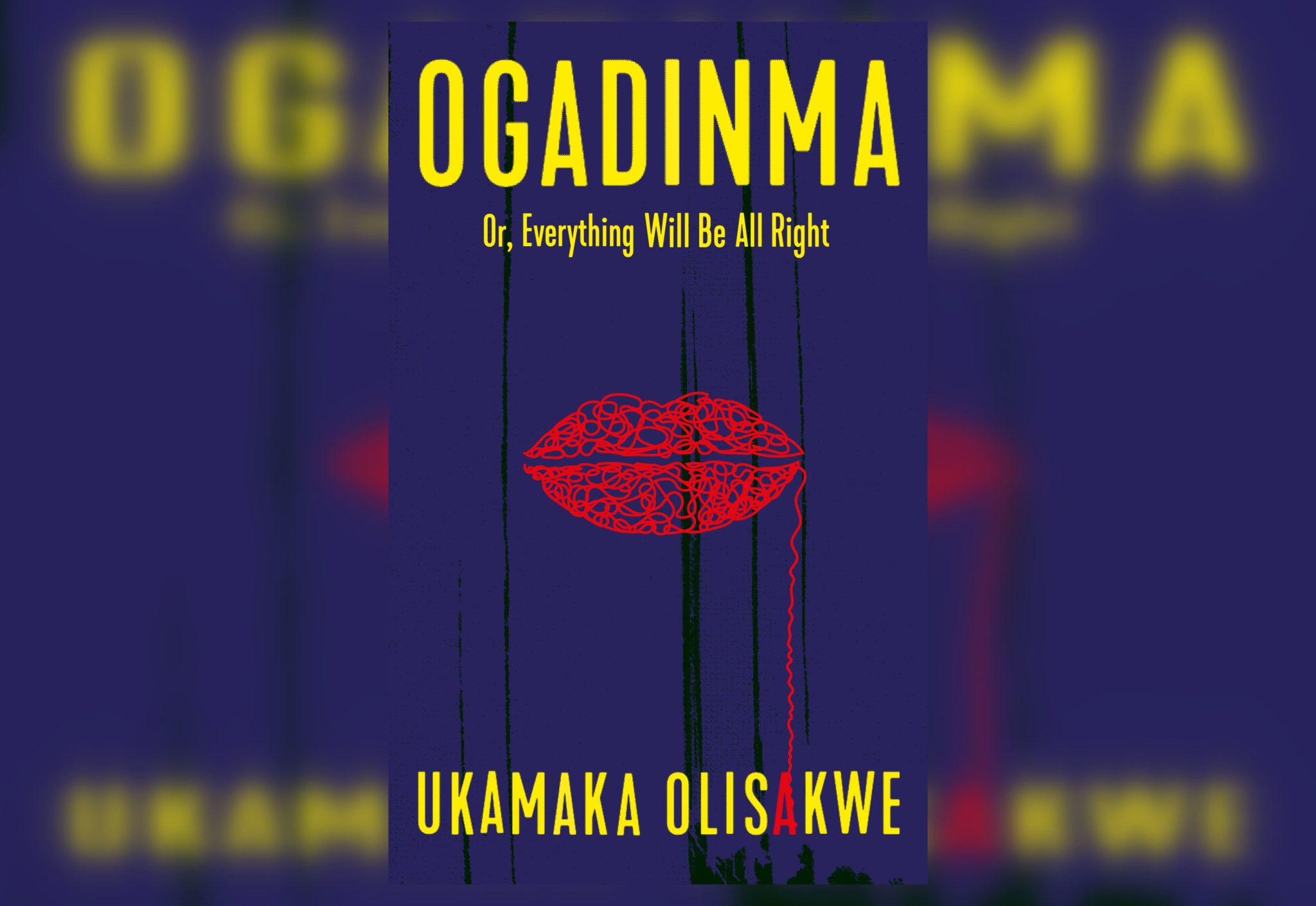Ukamaka Olisakwe is one of Nigeria’s exciting fiction writers. Her latest novel, Ogadinma, or Everything Will Be All Right, presents a montage of men – or different images of masculinity – as a way of telling a story of growth and discovery. The novel deplores male hegemony and exposes the perils of gender violence, while serving as a critique of how women can reinforce rather than undermine the patriarchal order that structures social relations. Nevertheless, it avows female autonomy. The novel is a Bildungsroman, with a young woman, Ogadinma, at the centre of the narrative. In her book The Nation Writ Small, Susan Z. Andrade writes that the Bildungsroman tells a story of emotional maturation. The trials the young protagonist faces are “lessons of life” that help them to grow and develop.
In this novel, Olisakwe introduces Ogadinma as a naïve teenager who falls prey to a sexual predator, is later abused when she gets married by her husband, and finally defines life on her own terms. The text’s depiction of men, mostly unflattering, may easily draw the ire of some male readers. Barrister Chima, for example, is portrayed as a rapist; the protagonist husband Tobe is a brute; Uncle Ugonna appears gullible; Kelechi is an opportunist; and Onye Ekpere is a charlatan. Though Ogadinma’s father is presented by turns as receptive and resistant to female selfhood, he comes across as authoritarian. Olisakwe unflinchingly criticizes dominant masculinity. In Issues in African Literature, Charles Nnolim avers that Flora Nwapa, Mariama Ba, Nawal el Saadawi and other African female writers have not only demonized women but also men. Such writers fall into the category of radical feminists who propagate anti-social ideas. To this end, Nnolim implores feminist writers to pay more attention to the complexity of gender identity in their narratives of self-actualization for women.
Olisakwe’s novel dramatizes female self-definition through Ogadinma’s character. In asserting female agency, she registers an urgency to question cultural notions of manhood. Despite that she presents men as oppressors and exploiters of women, she makes sure that Nnanna, the protagonist’s cousin, stands out from the other male characters in the story. He personifies an alternative male identity. More specifically, he functions as an exemplar of what I call receptive masculinity, a man who does not see women as objects to be ruled and controlled; a man who rejects traditional ideals of employing violence to subjugate women and his fellow men. Instead, a receptive man recognizes a shared human vulnerability. He opens himself to the predicament of the other. Such a man undermines patriarchal ideology.
Similarly, Nnanna illustrates what Chielozona Eze conceives of as feminist empathy. In Ethics and Human Rights in Anglophone African Women’s Literature, Eze describes feminist empathy as the capacity of men to feel with a “woman in unwarranted suffering.” Feminist empathy serves as a frame to help us understand the interlocking forms of oppression common to women in Africa, from which men in general are exempt. Olisakwe narrates stories about Nigerian women in pain – pain caused mostly by men who are invested in securing and perpetuating male power and hegemony. However, she constructs Nnanna to be receptive towards such women. The first time we are introduced to him is at a motor park in Lagos when he and his father come to pick up Ogadinma. While father and son are talking in the car, Ogadinma feels “her chest suddenly tight” because she misses her father whom she has left in Kano. Nnanna notices her disquiet and asks, “Why are you crying?” Ogadinma prevaricates but Nnanna still reaches out a hand and rubs her shoulder and “[s]something lifted from her chest” (37).
When they arrive at her uncle’s home, Nnanna prepares the bath for her. Stepping into the bathroom, Ogadinma is surprised by its neatness: “Without being told, she knew Nnanna had made it so. She could almost imagine what his room must look like” (40). By the time she is ready to have her breakfast, Nnanna has prepared fried eggs and bread for her. He does not regard the kitchen as a female space, a domain where he could lose his masculinity. It should be noted that Nnanna has a sister, who treats Ogadinma with disrespect. That notwithstanding, he evinces qualities dominant culture usually associates with femininity: sensitivity, caring, tenderness, and empathy. Further, Nnanna has no qualms about befriending a woman who is five years older than him as he tells Ogadinma, “I just want to be happy with the person I have chosen to spend my life with” (236). He supports Ogadinma when he discovers that she has fled her abusive marriage. Throughout his interactions with her, he never once judges her. He still identifies with her, even when he finds out that she has dumped her son with his mother.
Nnanna is a radical example of what it means to be a man in contemporary times. He is among a new generation of young men redefining masculinity. His performances of masculine identity do not threaten women’s autonomy but rather affirm it. He embraces his feminine side to show that gender is a means by which we construct and present ourselves in society. He also shows that gender is another social category that human beings use to differentiate and discriminate against one another based on notions of who can be recognized as man or woman. Nnanna’s way of being a man challenges the patriarchy. Other male characters in Nigerian fiction such as Nwoye in Chinua Achebe’s Things Fall Apart and Jaja in Chimamanda Ngozi Adichie’s Purple Hibiscus likewise demonstrate such receptivity. Ukamaka Olisakwe’s Ogadinma emphasizes the complexity of human identity and the need for social change, while prompting us to reconsider the value we place on gender and sexual identities.
Uchechukwu Peter Umezurike is a PhD Candidate and Vanier Scholar at the English and Film Studies department, University of Alberta, Canada. His critical essays have appeared in Postcolonial Text, African Literature Today among other venues.
